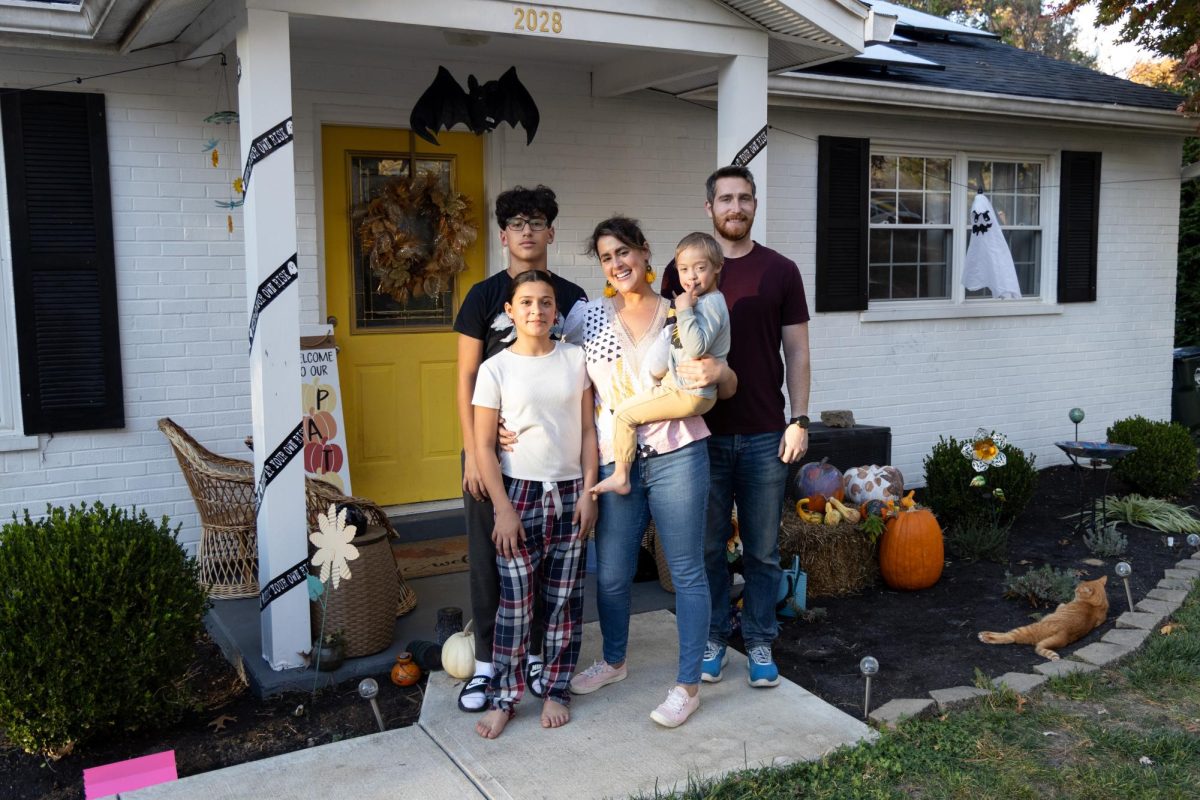Flying in Black Hawks, climbing the private sector and raising three children ignited a spark that Rachel Paxitzis hopes to light in others.
Paxitzis enrolled in the military a couple years after 9/11 and even served as a reservist. Her Military Occupational Specialty was 31B, a military police officer.
After being deployed, she became a protection detail for four-star General George Casey, the 36th chief of staff of the U.S. Army.
“We would take a Black Hawk helicopter every day to work. I would escort him to all his meetings, like Pentagon conferences, the Iraqi Embassy and all that fun stuff,” Paxitzis said.
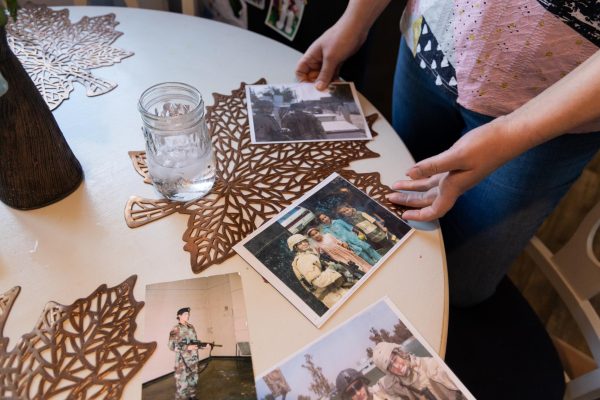
She was later promoted and even served as an operations battle captain where she managed a prison and reported everything “down to the letter.” This became a standard practice following Abu Ghraib, an abuse scandal in an Iraq prison.
“Abu Ghraib was a big thing. There were abuse scandals that happened in Iraq and in these prisons, so I just had to send reports daily to the Pentagon,” Paxitzis said.
In 2013, she was honorably discharged to support her two children as her now ex-husband, who was also enlisted in the Army, was being deployed to prisons in Cuba. Paxitzis held several positions within the government following her discharge and even worked for private sectors to provide for her family.
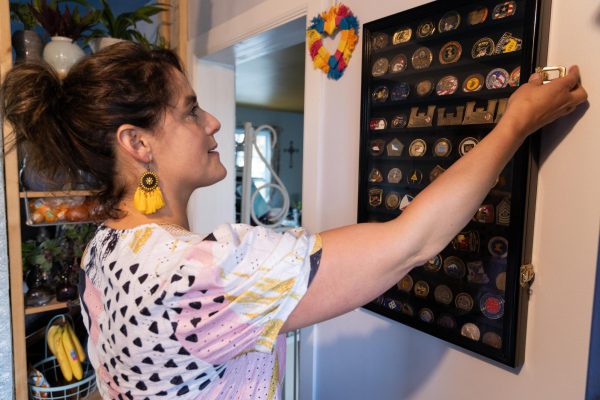
It was not long after that Paxitzis became pregnant with her third child who was born with Down syndrome and other medical complications.
“He was born with a heart condition and he was on a ventilator. I basically was a single mom working with three kids, co-parenting with my first two and my youngest had a pulse oximeter and a ventilator… which was difficult, to say the least,” Paxitzis said.
And then came COVID-19. Paxitzis was forced to work virtually from home and found herself with an overwhelming sense of isolation. As an extrovert, she found her mental health began to decline.
Right before Paxitzis decided to walk away from her high-paying job, the U.S. passed the PACT Act, which expanded healthcare to veterans with exposure to toxic substances during service. This made Paxitzis eligible for vocational rehab, a program for veterans to find success in their preferred field.
Paxitzis decided that she wasn’t finding fulfillment in her previous ventures but was always drawn to art. She had consistently used arts and crafts as a way of expression and felt she could enable others to do the same.
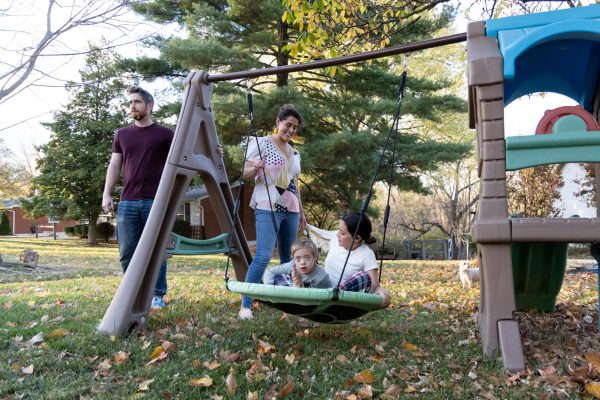
“I wanted to learn specifically so I could teach and do meaningful work every day. It’s not something I want to retire from or quit, because this is something that I do for mental health anyway. It’s something I really love,” Paxitzis said.
In the fall of 2022, Paxitzis enrolled at NKU, where she has since become very involved on campus.
Art Professor Kevin Muente says she brings a refreshing energy which impacts the people she is around.
“As a teacher, if you have students giving energy in class, it fills you with energy to share with students who need more. Class gets that much more fun and unexpected,” Muente said. “We were doing environmental landscapes, and she came early to set up a picnic space for us to sit.”
Muente shared that during a ceramics event where students from the region auction and sell their work, Paxitzis promoted her fellow students’ work and was able to outsell the other ceramicists.
According to Ben Huber, studio technician for ceramics and sculpture, Paxitzis has used her own money to buy outdoor furniture for the ceramics building and even reserved a lounge for students.
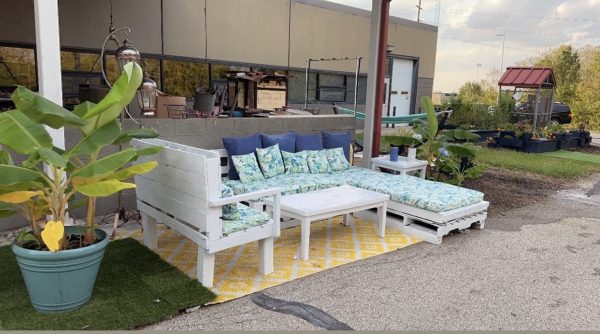
“She saw a need, went out of her way and used her own money to make a space for students. She got permission to turn an open space into a lounge. She even got a coffee machine, microwave and refrigerator,” Huber said.
The Ceramics Club, which meets every Friday, uses the furnace to make pizza, so Paxitzis collaborated with the Horticulture Department to plant a garden to grow their own ingredients for the club.
But her influence is not just about providing resources for students. Huber says she is also being an example for other students.
“She, in a lot of ways, is sort of fearless and is okay with failing in the best way possible,” Huber said.
Paxitzis says ultimately her goal is to establish a nonprofit that enables artists to produce work in the city and local community. She hopes that her actions will show others what they’re capable of.
“I’ve lived a lifetime compared to some of my peers. I started with nothing, I started with no skill, so I’ve learned everything at NKU. If they can teach me from nothing, I can teach anyone,” Paxitzis said.


